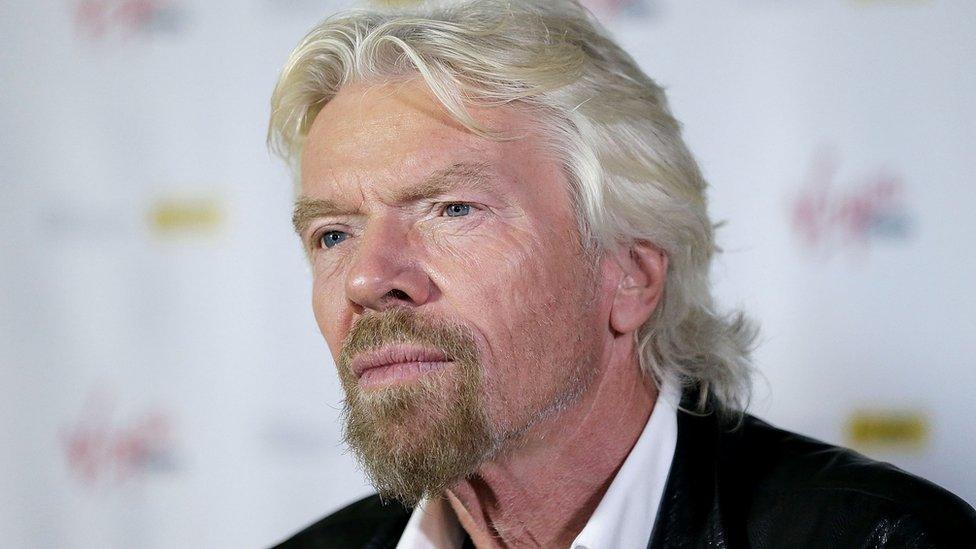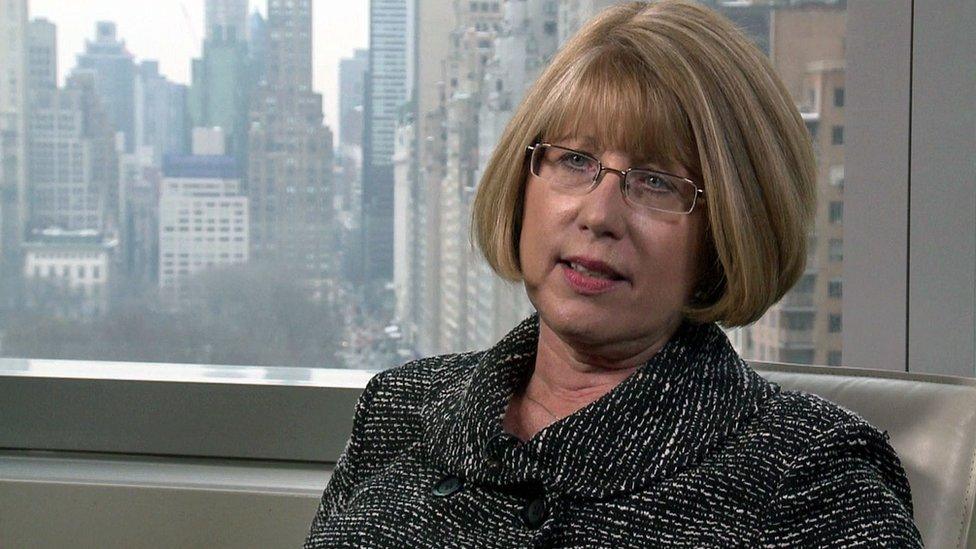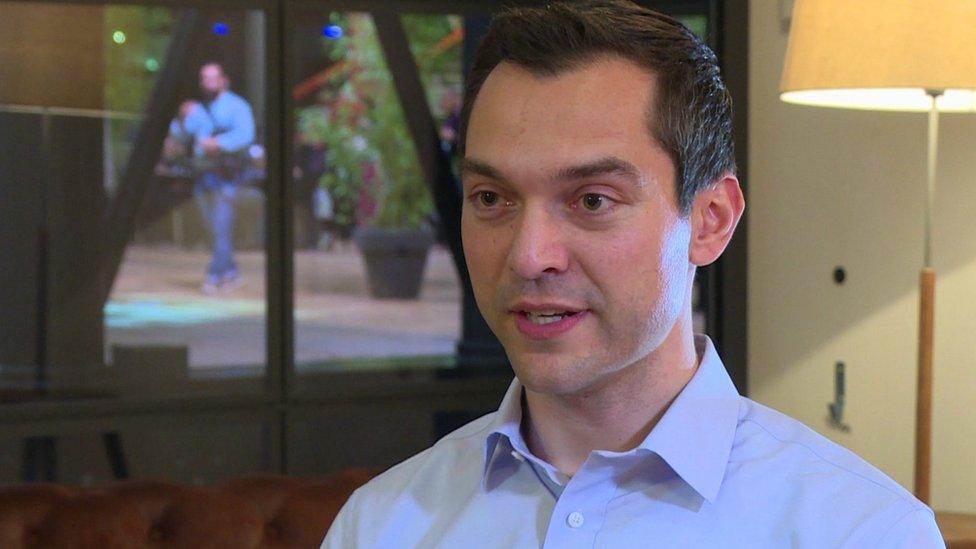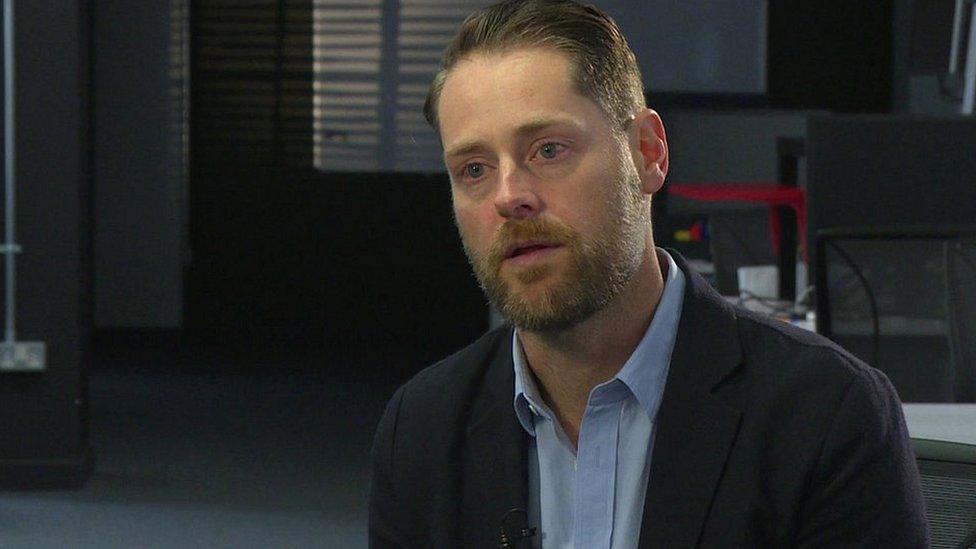The millennial generation shaking up the workplace rules
- Published
"Millennials are known to be more purpose-driven," says AirBnB's Nathan Blecharczyk
Virgin Group recently held what it called "a corporate day" asking its employees to behave in the way many traditional firms require - for just one day.
Staff had to wear formal business wear, arrive at 9am, use the titles Mr and Mrs, couldn't look at social media and weren't allowed to make personal calls.
"It was a horrible experience for everybody," says Sir Richard Branson, one of the UK's best-known and wealthiest entrepreneurs.
The purpose of the exercise, he says, was to give its people "a taste of what a lot of the world is still run like".
As founder of the firm, which has gone from a mail order record company to having businesses in telecoms, travel and financial services, Sir Richard himself has never followed a conventional path to business success.
He left school at 16 and didn't go to university. And at the Virgin parent company, staff are able to work flexibly and take as much holiday as they like, for example.
'More flexibility'
His belief is that making work a more pleasant place to be, by offering more flexibility; such as the ability to dress down, work from home or part-time, and take unpaid leave if they wish, will attract people and encourage them to stay and fulfil their potential.
"Hopefully that'll be the world of the future and that's something that we're working towards trying to get more flexibility in the workforce generally," he says.

Sir Richard's approach is one that more employers may wish to emulate given the rise of the so-called millennial generation
While there is no universally accepted definition, the term "millennial" is typically applied to those born between 1980 and 1999, the largest age group to emerge since the baby boom generation, and a group that accountancy firm Deloitte predicts will make up 75% of the global workforce by 2025.
As a generation that came of age after the 2008 financial crisis and have never known a world without the internet, they have very different expectations about jobs and money.
Several surveys suggest that these younger workers aren't motivated by the same factors as previous generations, such as a job for life, but instead value a good work life balance and a sense of purpose beyond financial success.
Generation gap
It's a drastically different outlook from the generations before who are used to the more traditional hierarchy of large corporate firms - staying at the same firm and working a set number of years in a particular post before progressing.
But as this group grows as a proportion of the workforce, employers will have to shift their working practices to attract and retain staff from this generation.

Trust is key in a workplace, says China Gorman
Firms which get it right can create a competitive advantage in securing the best staff, says China Gorman, a HR executive with over 20 years' experience.
"No matter where in the world, no matter what industry, no matter the size of the company - trust is the foundation for creating a great workplace culture," she says.
But she admits it doesn't come easily to many, particularly those more used to a hierarchical structure.
"For some in the baby boomer generation knowledge is power.
"They operate on a need-to-know basis and 'I'll tell you what you need to know'."
'More purpose-driven'
Nathan Blecharczyk, co-founder of room sharing website Airbnb, which has over 2,000 employees, says in the technology arena in which they operate the competition for staff is very intense.

Companies need to create a creative environment for their workers, says Air BnB's Nathan Blecharczyk
In a bid to attract more millennials he says the firm makes it very clear what, its core values are to help make it stand out to would be employees.
"Millennials are known to be more purpose-driven, so as a company both internally and externally we're always communicating what our values are and trying to be true to those things," he says.
Accordingly, the firm has weekly Friday meetings in each of its offices, then an all company meeting every fortnight that is streamed live to its 20 offices around the world where it talks about the most important things to the company.
On top of this, it holds an annual three-day meeting in San Francisco where all employees are flown in so everyone can meet and communicate face-to-face.
He says the firm has also worked on creating a relaxed office environment where staff feel as comfortable there as they do at home.
"We're constantly trying to remind our employees of what business we are in, in creating an environment where they can be totally comfortable and where they actually want to hang out after work," he says.

Hootsuite's Ryan Holmes says his firm has tried to give individual teams more power
Ryan Holmes, the founder of Hootsuite, which provides social media management tools, has also worked hard to avoid the traditional hierarchies of larger firms.
Rather than having a layer of management which dictates to their team below, the firm has instead tried to give individual teams more power.
It's also created a so called "guru track" to enable those in the company who don't want to become traditional leaders still achieve some kind of recognition.
Instead of trying to ram a round peg into a square hole, "[It's about] how can we help this person progress through their career as an amazing engineer, instead of the only track is to become a leader or a manager".
For companies adapting the way they work to millennials' strengths, is a direction which CEO coach Steve Tappin believes will be effective.
"If CEOs try and over control in the old way then millennials will walk but if you can harness their ideas, passion and energy then that's going to power the future success of the company," he says.
This feature is based on interviews by CEO coach and author Steve Tappin for the BBC's CEO Guru series, produced by Neil Koenig.